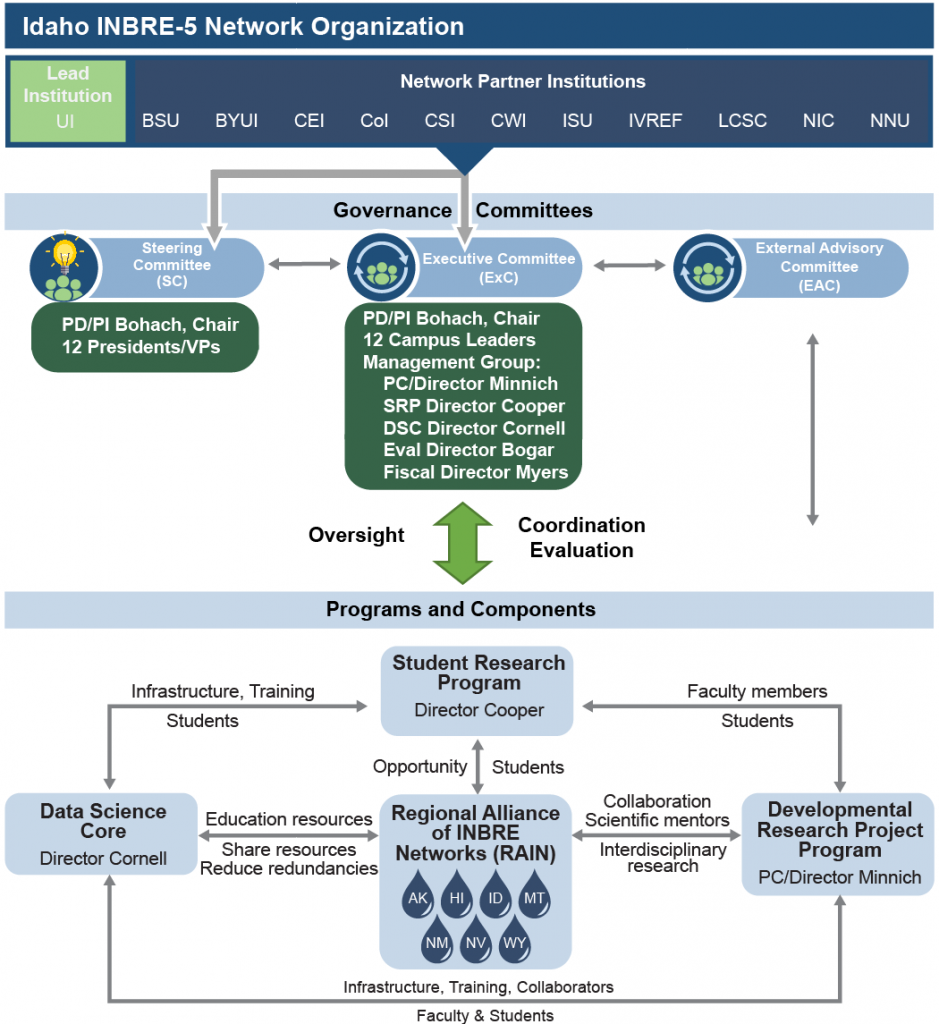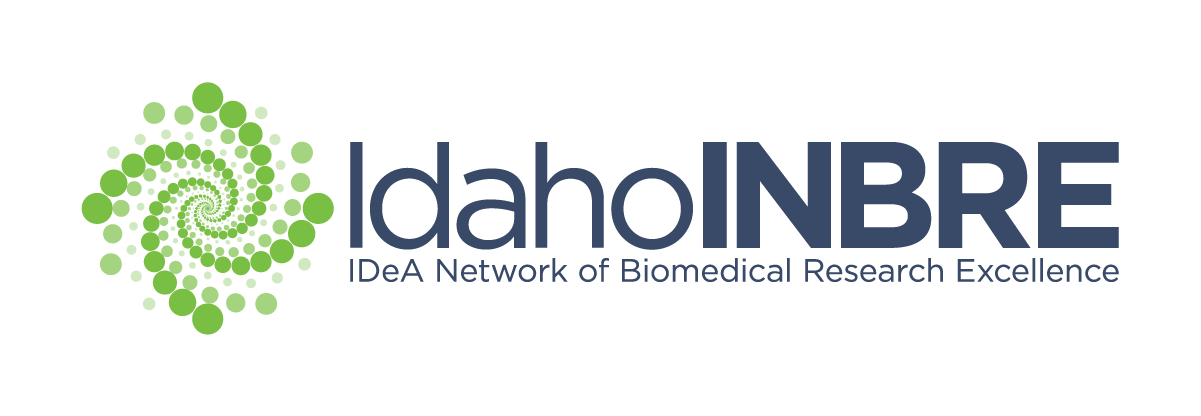The Idaho INBRE Administrative Core, led by Dr. Carolyn Hovde Bohach, Program Director/Principal Investigator, provides the “face’’ of INBRE in Idaho and articulates the NIH vision to bring research excellence and rigor to institutions across the state. It provides logistical support for the Network by facilitating systematic communication among investigators, providing training and mentoring for faculty and students, overseeing research activities, and assuring investigator access to state-of-the-art research facilities. The Administrative Core coordinates a Data Science Core, a faculty Developmental Research Project Program (DRPP), and a Student Program.
The statewide Steering Committee (SC) is responsible for ensuring the Idaho INBRE Program adheres to is mission in building research capacity in Network institutions statewide, and for Network institutions’ commitment and support for their faculty and students’ participation in INBRE activities. The Steering Committee will be consulted for decisions with Network-wide impacts, such as changes in Network membership, appointment of the EAC Chair, alterations to program priorities/key policies, and start/termination of initiatives. The 13-member Steering Committee is chaired by PD/PI Bohach and includes one senior institutional leader (president, VP, provost, etc.) from each Network institution. The Steering Commitee meets annually.

The Executive Committee (ExC) is responsible for establishing policies, developing initiatives, overseeing programs, making funding recommendations, and coordinating Network activities. The Executive Committee is chaired by PD/PI Bohach and includes one faculty member (INBRE Campus Leader) from each Network institution and the Administrative Core Management Group. This 18-member committee meets twice yearly and submits semi-annual progress reports to the External Advisory Committee.
The External Advisory Committee (EAC) provides PD/PI Bohach, the Steering Committee, and Executive Committee, advice on administrative matters, and monitors the effectiveness of the Idaho Network to increase research competitiveness in Idaho. The members were selected for their outstanding scientific expertise, experience with mentoring, grantsmanship, familiarity in building sustainable research programs, and knowledge of the research/workforce climate of Idaho. The EAC reviews the performance of each INBRE component on a semi-annual basis and submits annual reports with formal recommendations to the Steering Committee.
The Developmental Research Project Program (DRPP) selects and supports the most promising and meritorious biomedical research in the Idaho INBRE scientific theme of Cell Signaling. The goal is to augment and strengthen the Network by providing research opportunities to faculty and students and requiring standards for research excellence. The DRPP also expands research capacity through regional and investigator-responsive initiatives. Foremost of these is the Regional Alliance of INBRE Networks (RAIN) that has been developed to share established programs and infrastructure with Idaho, Montana, New Mexico, Wyoming, Nevada, Alaska, and Hawaii.
The Data Science Core (DSC) integrates cyberinfrastructure tools and resources, bioinformatics/biostatistical consulting, and bioinformatics training. It supports computationally intensive research under the broad Cell Signaling scientific theme. Facilities are physically located at the University of Idaho, Idaho State University, and Boise State University and are open to the entire INBRE Network. A Data Science Committee with representatives from all INBRE partner institutions guides Core use and educational resources.
The Student Program provides a broad continuum of research opportunities, in both academic and industrial settings, to generate and enhance a skilled, diverse workforce for Idaho. A series of interlocking progressively intense student research experiences involves all 11 Network institutions and comprises a ‘pipeline to health research careers’ starting from K-12 through post-doctoral and medical student training. Central to the Student Program is mentoring and career advising. Our programs allow any student in Idaho who has an interest in and a talent for biomedical research to find an opportunity to pursue research in Idaho.

